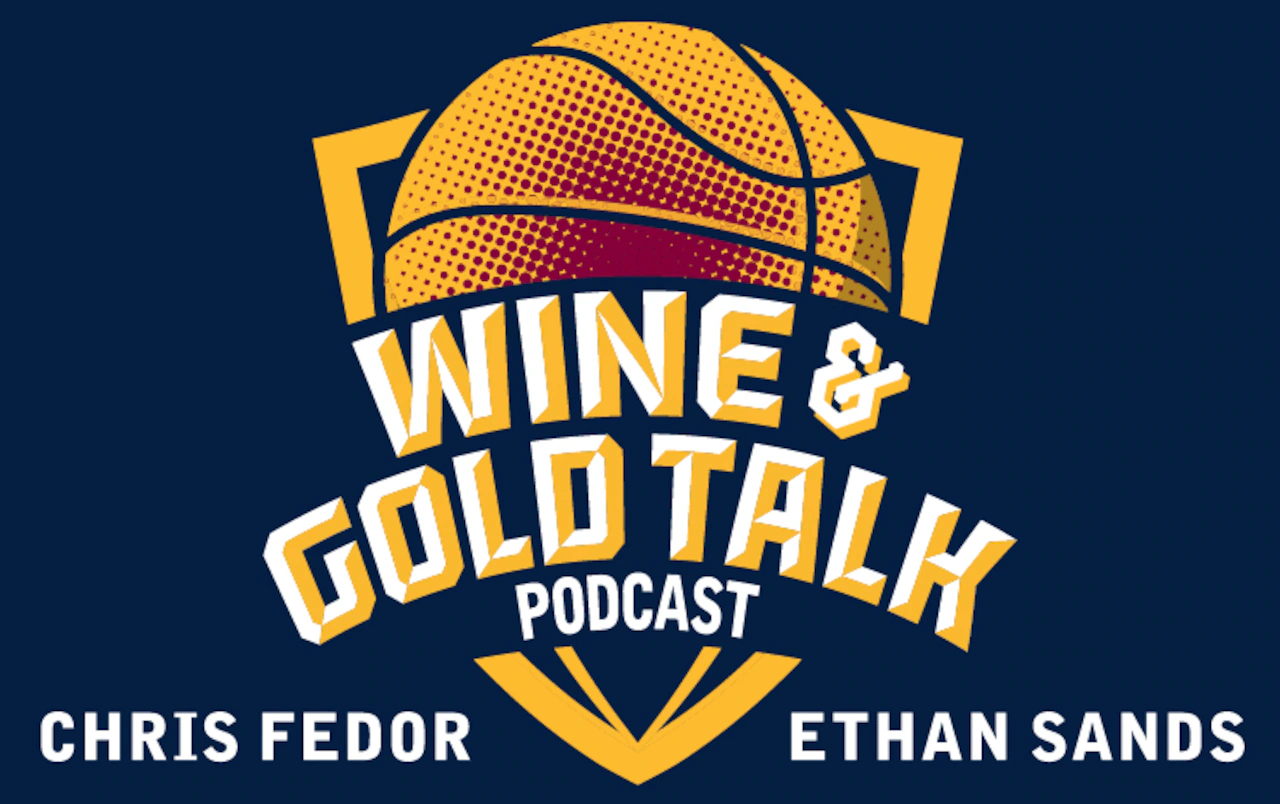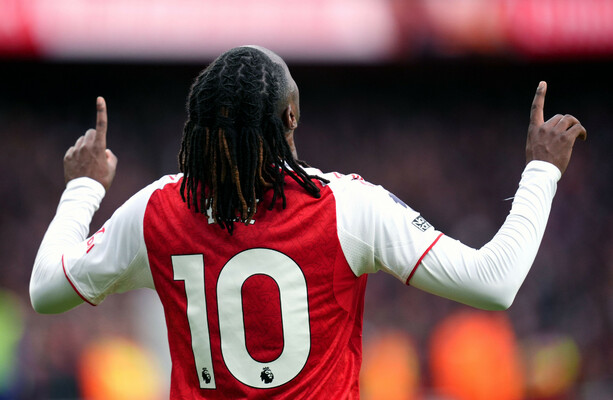Copyright cleveland.com

CLEVELAND, Ohio — In this episode of the Wine and Gold Talk podcast, host Ethan Sands is joined by Omari Sankofa II of the Detroit Free Press to discuss the Cavs’ win over the Pistons. More Cavs coverage Cavs sharpshooter injures hip in win over Pistons Cavs tap into defensive identity during win in Detroit, 116-95 ‘Hellacious schedule’: Cavs head coach calls out NBA’s 82-game grind Takeaways: 1. League-Wide Discussion on Shortening the NBA Season Intensifies The grueling nature of the 82-game NBA schedule is under scrutiny, with prominent figures advocating for a change. Prompted by injuries around the league, Cavaliers head coach Kenny Atkinson voiced his support for a shorter season, echoing sentiments previously shared by Steve Kerr. The argument is that fewer games would lead to a better on-court product for fans by reducing player fatigue and the frequency of back-to-back games. This would theoretically lower the risk of injuries and ensure fans see players at their best more often. While financial and statistical record-keeping hurdles exist, Sankofa agrees that the quality of play would benefit, suggesting a 72-to-64 game schedule would be a “sweet spot.” 2. Pistons Face a Season of Dueling Objectives The Detroit Pistons are navigating a season with two distinct goals. On one hand, the players are riding the confidence of a competitive playoff appearance last year and are determined to take the next step by winning a playoff series. On the other hand, the new front office, led by Trajan Langdon, is in an “evaluation mode.” Since most of the current roster was not drafted by this new leadership, a primary objective this season is to gather information and determine if the current core is worth fully investing in for the future. 3. Ausar Thompson and Jalen Duren are Keys to Pistons’ Future The Pistons’ ability to transform from a playoff team into a genuine contender hinges on the development of its young talent, particularly Thompson. Sankofa identifies Thompson as the key player who could elevate the team by becoming a second star alongside Cade Cunningham, a necessary ingredient for most modern contending teams. His athleticism and innate gifts make him a candidate for the Most Improved Player award. Alongside Thompson, the continued growth of fourth-year center Jalen Duren is critical. Improving the finer points of his defensive game, such as rim protection and operating in drop coverage, would significantly raise the team’s ceiling. 4. Cavaliers’ Defensive Strategy Shines in Victory The Cavaliers’ dominant win over the Pistons was built on a multifaceted defensive game plan. The team successfully neutralized Pistons star Cade Cunningham by utilizing the size and length of forward De’Andre Hunter in the primary matchup. Cleveland also employed a scheme of shrinking the floor, collapsing on the paint and challenging Detroit’s less consistent perimeter players to make shots. A key difference-maker was the full-court pressure applied by the second unit, led by Jaylon Tyson and Craig Porter Jr. This strategy, which is becoming more common across the NBA, disrupted the Pistons’ offensive rhythm and sparked the decisive scoring run that put the game out of reach. 5. Eastern Conference Predictions Looking ahead, Sankofa projects the Cleveland Cavaliers and the New York Knicks as the top two teams in the upper echelon of the Eastern Conference. He believes the Detroit Pistons’ goal should be to secure a spot in the next tier, with a finish anywhere from third to fifth being a sign of a successful season. A benchmark for Detroit to feel secure about its trajectory would be to win around 44 games. The conference remains competitive, with teams like Orlando, Atlanta, and Milwaukee (still a playoff threat with Giannis Antetokounmpo) in the mix, and the Toronto Raptors named as a “fun wild card” team. Listen using the player below: You can also listen using your preferred podcast app. Subscription information is below. Subscribe and listen onApple Podcasts or Spotify. The video version of the podcast is on YouTube as well. Transcript NOTE: This transcript was generated by artificial intelligence and could contain misspellings and errors. Ethan Sands: What up Cavs Nation? I’m your host, Ethan Sands, and I’m back with another episode of the Wine and Gold Talk podcast. I’m coming to you from Motor City. And on today’s episode, we’ve got one of the best storytellers in the NBA media game joining us, a guy who doesn’t just cover basketball. He captures the heartbeat of a franchise and the pulse of a city. You’ve read his work in the Detroit Free Press, you’ve heard him breaking it all down on the Pistons post podcast. And if you follow the league closely enough, you already know that his name holds weight. Omari Sankofa II has built a reputation for his sharp insight, balanced perspective and and deep connection to the players and culture he covers. From feature writing to film breakdowns to front office context, his reporting consistently brings Detroit basketball to life. Armari Sankova, welcome to the show. Omari Sankofa II: That was a heck of an intro. First of all. Thank you man. I think this is my second time on here. I’m happy to be here, man. Ethan Sands: I appreciate you jumping on. We are coming to our listeners after the Cavs domination of the Detroit Pistons 11695 where we saw the Cavs get up to a 35 point lead at one point in this game. And we know coming in the Detroit Pistons play physical. But in tonight’s matchup the Cavs actually answered the call, something that they haven’t done historically and arguably they’ve done best against the Pistons, especially with JD Biggerstaff on the other side. The what did you take away from tonight’s ball game? Omari Sankofa II: Yeah, the Pistons just didn’t have it. They were up to with like three minutes left in the fourth quarter and then the Cavs ended that quarter with an 110 run and I think it was a 252 or 254 run before the Pistons finally got another bucket and that was almost a full quarter without a field goal. So tonight was just one of those nights. You’re going to have these nights over the course of a season where you just lose team and like don’t show up. Essentially it was both of these teams third games and four nights and the Pistons were at home. So you really can’t use that as an excuse. But they’re two and two. You know you’re going to have bad losses. The next couple of weeks will determine if this is a warning sign or if tonight was just an outlier. But this was comfortably the worst game they’ve had so far this season and. Ethan Sands: Obviously this is the first time that you’ve gotten to see DeAndre Hunter, a part of the Cleveland Cavaliers. He’s a guy that the Cavs are still getting acclimated to. And Donovan Mitchell talked after the game about you’re starting to see how he is progressing with this unit, the camaraderie that they built over the summer that they had together. And obviously he missed the first two games of the season. He was on Cade Cunningham to start the game and he had a productive night defensively as the Cavs did, as you mentioned as a whole. What did you take away from the matchup between DeAndre and Cade and just the difficulties that Cade had getting to his spot side tonight? Omari Sankofa II: Yeah, DeAndre Hunter, I mean he’s like a big long forward. Like he’s a guy that certainly could match up with Cade physically. So it’s not the type of matchup where, you know, Cade, like over smaller guards, Cade would just post up and like operate at the rim or mid range or whatever and he could feast to those matchups. So a little bit different with DeAndre Hunter, like I think also just the Cavs overall scheme, you know, shrinking the floor a little bit, challenging guys like Asar Thompson and Ron Holland to knock down threes kind of works against the Pistons, who I think missed Tim Hardaway Jr. And Blake Beasley a little bit, although Duncan Robinson obviously replaces some of that. But like he’s one player, you know, and those are two guys who are prolific shooters. So yeah, I mean, Cavs are a good defensive team. They’ve got two great rim protectors. I mean, you know, they’re going to play in the lanes, they’re just going to make life difficult. And Kane just couldn’t get it going tonight. Ethan Sands: Yeah. And we talked with J.D. bickerstadt before the game about the overarching view of the league. Kind of going back to this defensive mind in execution with players guarding 94ft. And obviously we know that JU Biggerstaff likes that kind of rough and tumble kind of defensive style because of his, his background. But the Cavs actually utilized that in their second unit. When we talked about that first quarter to second quarter where the Cavs held the Detroit Pistons scoreless or without a field goal, I should say from the four minute mark of the first quarter to the five minute mark of the second quarter. And Jaylon Tyson and Craig Porter Jr. Two guys that didn’t necessarily get a lot of run last year, were pivotal in those matchups. When we talk about the overall landscape of the NBA, what have you noticed of how the defensive structures have changed and then also just those two guys having the game that they did, especially against more experienced players. Omari Sankofa II: Yeah, I think there’s more teams just applying for court pressure now, you know, just to delay the amount of time teams can get into their sets. And obviously if you have a team that’s challenged for ball handlers a little bit, you know they’re going to have more issues at times. The Pistons have diversified their offense. We’ve seen Asar be the primary initiator a lot more than his first two seasons and he’s got to relieve some pressure off of Cade. But they don’t have Jaden Ivey, you know, who was obviously set up to have a pretty important role on this team, and that’s hurt them. So, you know, I think those guys applying full court pressure on Cade, you know, I think they countered by having Stu endure and bring the ball up a little bit and that didn’t really work out that well. So it’s just the league is just so talented offensively now that you basically just have to try everything to, you know, get teams out of their rhythm. And that’s one thing that seems to be making a difference. You typically see full court pressures in college a lot more, but it’s making a comeback in the NBA. Ethan Sands: And we talked a little bit about the defensive matchups I wanted to point to. Asara Thompson is arguably one of the better guards in the league when it comes to just facing up against whoever he’s against. And Donovan Mitchell is an elite player and an elite shot maker. As we know, he gave Asara a tough time tonight, but dropping 35 points on 13 of 18 from the field. We know what Donovan Mitchell can do and how difficult of a guard he is. What did you see from that matchup and how Asar kind of fell off when it comes to discipline and fouling and all those different things. Omari Sankofa II: Yeah, it wasn’t Asar as the best game and he also only played 15 minutes, didn’t get a lot of burn in the second half. You know, four fouls in that stretch, obviously. So he has some issues. Donovan Mitchells is just a great player. Some of the shots he during that third quarter run were just pretty ridiculous. And he just had a night where he got to do whatever he wanted. Those are matchups that Asar, typically they can handle pretty well. But like again, the team just jointly had no injury today. And I think that also reflected in USAR not having just the best offensive night. Ethan Sands: We talked a little bit about the injuries for the Detroit Pistons when it comes to Ivey. But obviously the Cavs were also without Max Stru, Darius Garland, Lonzo Ball who was out because of he’s his monitored minutes of back to backs and not playing in those to start the season at at least. But also understanding that Sam Merrill went out in the third quarter with a right hip contusion. Whether or not he’ll be available down the stretch is still to be seen. But the injuries around the league are taxing and starting to pile up. We talked pregame with Kenny ATKINSON about the 82 game season kind of being shrunk and him saying that he would be down for that and kind of reiterating the fact of what Steve Kerr said in different interviews in the past. Like maybe 70, 72 games would allow for a better product for the NBA, would allow players to get more rest and would allow for fans to be able to have more meaningful games to watch and their favorite players be available more often. What do you think about the dynamic of potentially having a shrunk season and what that could mean for the NBA? Omari Sankofa II: Yeah, as somebody who’s been through a few 82 game seasons now, you do sort of gain an appreciation for how much of a grind it is. And Kenny Akis point and you know, I think a point a lot of people would agree with is that what a team is playing on the second half of a back to back, they’re not always going to be at their best just from like a rest standpoint. And because of that like as a fan a lot of times you’re just going to inherently get like not as good of an experience watching a fatigue basketball team. Like I personally feel like if he went to like 72 that would be more of a sweet spot because you would eliminate some back to backs, you would just eliminate some of the more wild stretches of the season. And like with that like I think you will see fewer injuries. I think there would be a lot of benefits to that. But I also think in a league that’s always been 82 games you remove games and now you know that’s going to mess with stats and whatnot. Hey, the NFL has added games and just people just accept that you have an extra game. So you know like some stats are just going to be a little bit off because of that. Like guys not have an advantage in that category. A lot of guys are not playing that 17th game anyway. But long story short, I think it makes sense to shave some games off of the schedule. You know, from a financial standpoint I don’t know if that’s Feasible. But a lot of people would agree that 82 games is probably a bit excessive. Like I would even argue you could go down to like 64 probably and not miss much. Just from a quality standpoint. You know, I think that’s probably two, three games a week and, you know, guys are at full strength. Yeah. Ethan Sands: And obviously the injury management that we, we’ve seen throughout the league with Joel Embiid and and other teams as well, and then also the Achilles tears that we’ve seen from Tyrese Halliburton and Damian Lillard and Jayson Tatum, like, that has kind of raised the awareness of the grueling season and kind of brought coaches to the mindset of needing to speak out on this topic. And I think it’s an interest. And Kenny Atkinson doing so on his own volition after being asked about the back to backs spoke volumes tonight. And I think it’s, it’s an important topic that we’re going to continue after the season, especially if these injuries continue to pile up. But Omari, while I have you, I do understand that the Detroit Pistons are a team that are trying to be in the playoff hunt again, trying to have an identity that they can rely on night in and night out. When I ask you this, I’m trying to figure out what the Pistons goal is for the season. Where you see them pictured out and what kind of threat that they could pose to different teams in the Eastern Conference. Omari Sankofa II: If you ask the players, like they want to take a clear step forward, right. You win six games with the Knicks, you know, you got two wins at Madison Square Garden and we’re really like a missed call away from making it a seven game series, you know, so you come back from that and that gives you confidence that, okay, you’ve arrived and now, you know, next year you actually want to win the playoff series. Right. You know, so I think the players see, you know, last year as a point that should propel them even further. Coach GM aren’t going to say out loud like, oh, we have to win a playoff series for the season to be successful. Because the reality is that I don’t think growth is linear. You know, teams deal with, you know, some, sometimes injuries or external factors or financial things that can slow down growth. And it just doesn’t help to say, oh, if we don’t do this, like we failed. Right. But I think they too just want to feel more confident that what they have is worth fully investing in. Most of this roster was not drafted by Trajan Langdon, you know, so he is, I think in evaluation mode still, you know, especially for a guy like Assar who, you know, came back from blood blood class last year and played himself back into shape and was on the minute restriction for most of the year. Jaden Ivey, like, hasn’t played a basketball game since January 1st, so there’s a lot on him that they still want to see. So, you know, there’s just still information together on this team, I think. And that’s something that the front office has to accomplish this season. Ethan Sands: When you look at a fully healthy Detroit Pistons roster, right. I had them on one of my lists for biggest threats in the Eastern Conference to the Cavs, right. Like probably in the top five, top six, top seven of that category. When we talk about what they pose, the physicality that we’ve talked about prior, about what that means to a Cav scene that hasn’t responded well to that in recent years. But knowing that they also added the shooting element of Duncan Robinson and knowing that they also lost a shooting element in Malik Beasley, where do you feel like this team has grown the most and can make another jump to help them win a playoff series? Omari Sankofa II: Yeah, I think Asar Thompson is the key to a lot of that. Just a guy with his athleticism, like, you know, his innate gifts. He, even though he had a quieter game tonight, like, I thought he still had some nice plays and, you know, he’s somebody, I think around the league people are pretty bullish on having a chance at being in the most improved conversation, he and his brother. And if he’s that second star on some level, then, you know, I think that puts you a lot closer to contention where, you know, every contending team now has at least two go to guys, you know, so if that’s a sire Thompson and you find that out, that’s huge. So I would say he’s a big key to the season. Also, Jaylen Duran, still only 21 years old and this is his fourth season, he’s grown. He still has some growth ahead, but at this point, he’s shown like, at very minimum, he’s a very productive NBA player. And he’s also a guy that I think can eventually step into a bigger role, especially if he can improve his rim protection and operating in drop, but still being able to contest threes and some of the finer nuances of the defensive aspect of the game. Ethan Sands: Not to put you on the spot here, but as we get closer to the end of this podcast, I wanted to get your sense of where the Eastern Conference is right, because we know Boston And Indiana are kind of going to be in flux. And Milwaukee is interesting because of the whole Giannis situation. Where do you see the Cavs and the Detroit Pistons in the standings this year? And where would you predict the Pistons to end up? Omari Sankofa II: Yeah, I think the Cavs and Knicks are probably the, you know, the, the teams that you would predict would finish one and two in some order. You know, Knicks are, you know, they have a new coach, a new system, so, you know, they may have some things they have to iron out to get to that point. And it’s still early, so, you know, it’s tough to get a grasp exactly of where teams are this early. But, you know, I think you could see pretty clearly that Boston has some deficiencies that they would have to work on to really be in a conversation. And, you know, with that said, I think the Pistons, you know, if you finish anywhere, you know, three, four, five, you know, I think you could feel good about that. Orlando’s gotten off to a tough start, but I think they’re going to figure it out and be a good team as they figure out how to incorporate Desmond Bain. Atlanta, I think also is 1:3, but I think they’re going to be pretty good. You know, Bill Walkey I think is interesting just with Giannis, and maybe you have just enough deaf pieces to make it work, but I even think just with Giannis, there’s still a playoff team in the East. You know, I think the Toronto Raptors are sort of a fun wild card scene because you look at their starting five and it’s not a bad, like they don’t have a bad roster at all. You know, I don’t know if it’s a roster that can win the playoff series, but like, I do think that they could be a playoff team. So if you’re the Pistons, like, you probably still want to have like that 44 win baseline finish above.500 again and, you know, if you can get, you know, pretty firmly into the playoffs, then like, that’s probably enough for you to feel pretty secure about what’s being built here. Ethan Sands: Can you just speak to like, slightly the trajectory of this Pistons team? Like we kind of saw it with the Cavs when Jamie Bickerstaff took over, like they were at rock bottom and he was able to help them get to a play in team, a first round playoff team. And now it feel like this Pistons team is kind of taking the right steps as well. Sure, roster helps, but having a coach that one believes and also has a kind of backbone that the Detroit City can rely on and lean on. It feels like he matches the vibe that Detroit needs. Omari Sankofa II: Yeah, it’s been a complete transformation in just two years, but you know they went from 14 wins to 44 wins and last year came in with no expectations of anything. Honestly, they just got better and better as the year went on. You know, I think Nassar coming back has something to do with that. It was a few things added to it, but they just really gelled and you know, they just got to add a spirit to them that enabled them to have one of the biggest and season turnarounds of all time. Yeah, so it was a little bit of an uneven, rough path to get to this point, but you know it did eventually jail and like that’s how it typically goes. Like OKC was really bad not that long ago. Houston was really bad not that long ago. It takes a few years for things to begin to jail. So I think last year was the first year where they looked cohesive and you could actually see this team eventually becoming a contender with some more development down the road. Ethan Sands: Yeah, I definitely think because of the gritty nature of this the roster and obviously the Cavs have more room to grow and the mental toughness is something that we talk a lot about on this show and trying to find the balance between the offensive skill set and the defensive identity that they’ve leaned their entire foundation on with Evan Mobley and Jared Allen. As we saw in tonight’s game, I think them finding the mental toughness and trying to rid themselves of this soft label, trying to rid themselves of the nice guy label is going to be interesting to see, especially come playoff time. And obviously when we talk about playing against the Detroit Pistons three more times this season, I think those matchups will definitely help test them, especially when the Pistons are a little more healthy and maybe when the Cavs are healthy. Because even when this roster is going to change over the season, you’re going to have to make those adjustments on the fly. But Omari, I appreciate you hopping on to day’s podcast, but with all that being said, that’ll wrap up today’s show of the why and Gold Talk podcast. But remember to become a Cavs insider and interact with Chris, me and Jimmy by subscribing to Subtext. This is where you can send in your weekly hey Chris questions, but the only way to do so is signing up for a 14 day free trial or visiting cleveland.com Cavs and clicking on the blue bar at the top of the page. If you don’t like it, that’s fine. All you have to do is text the word stop. It’s easy. But we can tell you the people who sign up stick around because this is the best way to get insider coverage on the Cavs from me, Chris and Jimmy. This isn’t just our podcast. It’s your podcast. And the only way to have your voice heard is through subtext. Y’ all be safe. We out.



